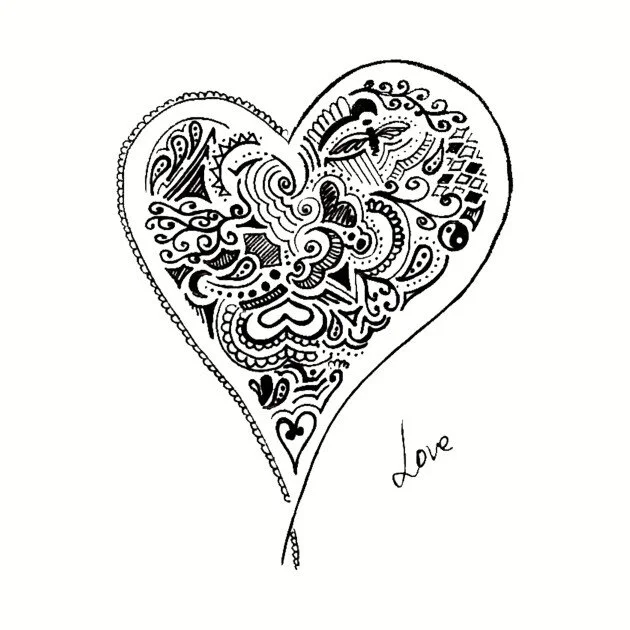Compassion Everywhere
I am dealing with a strained medial meniscus these past few weeks, and after two prior ACL surgeries, I’m aware just how humbling physical and emotional injuries are. Especially as a yoga teacher working on the “practice”, it was so frustrating not being able to teach or go for a walk.
Lots of long-term yogis (and humans) like myself deal with intense emotions—from outrage and anger, to sadness and fear. And though they are justified, in a spiritual practice, there is the myth if we just practice hard enough, or long enough, that our lives will be perfect.
Many teachers and gurus have sold yoga as a way for your body to never break down in age or have a temper that snaps. And on top of our search for spiritual perfectionism, we often have a negative internal monologue telling us that it’s selfish tending to our small pains in life, given all the suffering in the whole world.
Viewing this from yogic philosophy angle, we can see our errors, addictions, losses, or pain not as failures, but as invitations to really connect truly with our hearts, instead of shoving or burying away our feelings. Yoga teach us that the suffering in life is a good opportunity to awaken our compassion, and compassion is one of the keys to unlocking those stuck feelings that we’ve accumulated throughout the years.
Compassion or karuna, is a Pali word that literally means "a quivering of the heart in response to a being's pain." Pantajali’s Yoga Sutras asks aspiring yogis to cultivate karuna for others to retain our own peace of mind. By practicing karuna, we become open to pain without drawing away defensively and guarding our hearts. It asks us to touch our “weak spots” or wounds—and the wounds of others—as if they were our own. Instead of protecting ourselves from pain and darkness, we remain conscious and open, allowing ourselves to empathize and find connection.
As Tibetan Buddhist teacher Pema Chödrön writes:
In order to have compassion for others, we have to have compassion for ourselves. In particular, to care about other people who are fearful, angry, jealous, overpowered by addictions of all kinds, arrogant, proud, miserly, selfish, mean--you name it--to have compassion and to care for these people means not to run from the pain of finding these things in ourselves.
But why ever embrace darkness and pain? The answer is simple: it gives us a very deep spring of compassion that will naturally flow towards taking action in the service of others. We’ll take action not under guilt, anger, selfishness, bur rather the outpouring of love in our hearts. For example, not taking pleasure in seeing someone else suffer, but remembering how it may have felt when it happened to you, or could happen to you, and instead having compassion for them.
Our asana practice can be a powerful tool for helping us study and transform the way we habitually relate to pain and suffering. It enhances our ability to peel away the layers (samskaras) in the body and mind that prevent us from sensing what is actually going on, right here, right now.
Another formal way of cultivating this sense of compassion and connection is through the practice of tonglen meditation as Anne Cushman writes in Yoga International.
Tonglen--literally, "breathing in and breathing out"--is a powerful Tibetan Buddhist practice designed to awaken karuna. Tonglen is based on the assumption that within each of us there is not only suffering and sorrow, but a limitless capacity for compassion and love.
Tonglen instructions are seemingly pretty easy. While sitting in meditation, we invite into our awareness someone we know is suffering: a parent with dementia; a friend with liver cancer; a grieving sibling, a sick, starving child we saw on the evening news. As we inhale, we breathe in that person's pain as if it were a dark cloud, letting ourselves feel it’s intensity. As we exhale, we send the person the bright light of joy, peace, and healing.
This can be a powerful way to help us use our pain, not to isolate in a prison of self-pity and shame, but to open our hearts and to connect our pain with others’ pain. Even our small pains can connect us with the collective realities of loss and impermanence. Like for my knee pain, it reminds me that all people are fragile. And our deeper pains can lead us straight into the heart of compassion. Like a woman surviving a rare cancer can understand the pain and fear of cancer patients all over the world.
No one person is perfect and growth is a process. Though we often wish our lives were not filled with pain like injuries, disease and aging, if we look more closely, we probably wouldn’t want to have a painless life without any sorrows. Then we might be careless or apathetic to ourselves and others.
Every step that we take to awaken our hearts can have huge effects. As Thich Nhat Hanh explains:
"One word can give comfort and confidence, destroy doubt, help someone avoid a mistake, reconcile a conflict, or open the door to liberation. One action can save a person's life or help him take advantage of a rare opportunity. One thought can do the same, because thoughts always lead to words and actions. With compassion in our heart, every thought, word, and deed can bring about a miracle."

